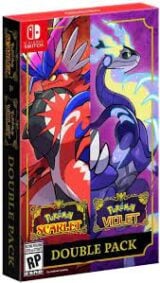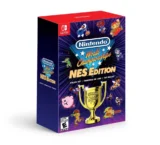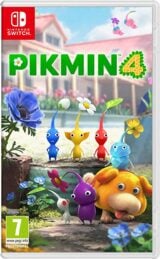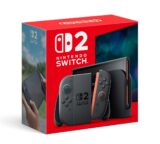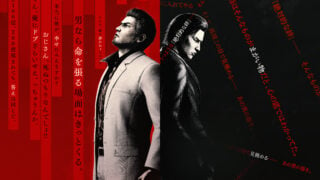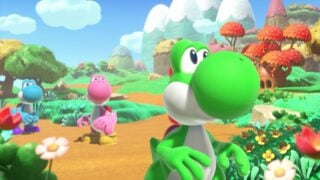That Time When… Nintendo bought a baseball team
The tale of Hiroshi Yamauchi, the Seattle Mariners and a league that didn’t want a Japanese businessman getting involved

In today’s sporting landscape, the idea of a sports team having a foreign owner is perfectly normal. After all, 14 of the 20 teams in the current English Premier League are owned by non-English people or companies.
Not all countries are willing to embrace international interest in their sporting franchises, however. In the United States, it’s still extremely uncommon to have a foreigner own an American football, basketball or baseball team. In the early ‘90s, it was downright unthinkable.
And yet, this was the dilemma that Major League Baseball found itself in 1992 when the Seattle Mariners were set to be bought by a group of businessmen led by Hiroshi Yamauchi, the chairman of Nintendo. An American team with a Japanese owner? Well, it just can’t happen, because… well, reasons.

At the time, the Mariners were struggling. After entering the league in 1977, the team barely averaged a million fans per season (that’s roughly 6000-7000 per game), and had only just managed to break two million at the turn of the ‘90s. The team’s owner, Jeff Smulyan, was becoming frustrated by the Mariners’ lack of turnover and had already been having secret talks to relocate the team to Tampa Bay, Florida.
In December 1991, as debts began to mount, Smulyan made an announcement: the Mariners were for sale. As per the stadium lease, it had to be offered to local buyers first, and if nobody was interested the team was going to move to Florida. A new organisation called The Baseball Club of Seattle was set up by a number of Seattle-based business owners, with the aim being to find a leader who would contribute the biggest share.
After approaching Bill Gates and being turned down, the group had to think outside the box. Step forward Senator Slade Gorton. Gorton was a huge baseball fan, and had previously worked on the US Senate’s commerce committee, at one point working to ensure tighter restrictions on counterfeit goods and IP theft in the electronics industry. This included a crackdown on bootleg video games, which was welcomed by companies like Nintendo.

Among the potential investors asked to contribute to save the Mariners, Gorton contacted Nintendo of America’s Howard Lincoln and asked if Nintendo was perhaps interested in getting involved. A couple of days before Christmas, Gorton got a phone call from Minoru Arakawa, the head of Nintendo of America and son-in-law of Nintendo owner Hiroshi Yamauchi.
Arakawa told Gorton that Yamauchi was interested in joining the Baseball Club of Seattle group and buying a majority ownership, as a way of thanking him and the general state of Washington for helping Nintendo find its footing in America. According to Mariners biographer Art Thiel, Arakawa told Gorton:
“Mr Senator, my father-in-law says Seattle and the state of Washington have been very good to us. We have done extremely well here. We believe we owe something to the community. If you need $100 million to buy a baseball team, you’ve got $100 million.”
Eventually, it was agreed that the offer would be $125 million: $100 to buy the team and another $25 million to put into the team to help with reorganisation. Yamauchi would offer to contribute $75 million and a group of other Seattle businesses would add the remaining $50 million, giving Yamauchi a 60% share. In theory, it sounded like the Mariners were saved, but first there was another major obstacle to overcome: Yamauchi was Japanese.

There was a real concern among some in the league that American sports teams should never be owned by anyone outside of the US and Canada, and that above all else those owners should never be from Japan. There had been tensions between Japan and America, not least of all because earlier that month President George H. W. Bush had visited Japan and, suffering from gastroenteritis at a banquet, vomited into the Japanese prime minister’s lap before fainting. This deal couldn’t have come at a worse time.
Bush’s inability to keep his dinner down wasn’t the only reason the Mariners deal was worrying. Japan’s economy was positively booming at the time, and there was a real fear that a Japanese owner could not only have a negative impact on American culture, but could throw endless money at free agents and cause the league’s average salary to skyrocket.
Although the deal looked set to be turned down, the story was causing a lot of discussion. It was so big it made the front page of the New York Times, with the headline “Japanese bid for Seattle team gets baseball’s cold shoulder”. According to the article, one of the biggest opponents to the deal was Major League Baseball’s commissioner Fay Vincent.

In a statement, Vincent said: “Baseball has addressed the issue of ownership of its franchises and has developed a strong policy against approving investors from outside the United States and Canada. It is unlikely foreign investors would receive the requisite baseball approvals.”
Things weren’t looking good, but over the course of the next six months pressure mounted on MLB to accept the deal, and eventually the camel’s back was broken by a rather influential straw: the President of the United States. Yes, the vomity one.
As a Senator, Gorton knew his fair share of politicians, so he got in touch with a good friend of his: the president’s son, George W. Bush (who at the time owned the Texas Rangers baseball team). Gorton asked the future president to have a word with his dad and see if he could sort everything out.
Bush Sr called the Mariners’ president Chuck Armstrong, who assured him there was no hidden ploy to let the Japanese take over American culture. Satisfied, Bush decided that he too was giving the deal his support.
Eventually, the pressure became too much and MLB folded, allowing the buyout to take place but only under one condition: Yamauchi could still pay 60% and own a majority share of the team, but he had to agree to limit his voting interest to 49%. The team may be owned by a Japanese man, but in case of any internal conflicts, Americans should have the final say on how it should be run.
The deal was done and on 1 July 1992, the Baseball Club of Seattle gained control of the Seattle Mariners. Although he was the majority owner, Yamauchi didn’t really have any interest in the team. As far as he was concerned, the buyout was a goodwill gesture to the people of Washington to help them keep their team in Seattle, as a thank you for their help supporting Nintendo. As such, he never attended a single game – not even when the Mariners travelled to Tokyo to play a series of exhibition games – and never visited Seattle while he owned the team.

The deal also occasionally brought benefits to Mariners-supporting gamers. Nintendo published four baseball games starring Ken Griffey Jr, the Mariners’ star hitter. The SNES got two of these (Ken Griffey Jr Presents Major League Baseball and Ken Griffey Jr’s Winning Run), whereas the other two appeared on the Nintendo 64 (Major League Baseball Featuring Ken Griffey Jr and Ken Griffey Jr’s Slugfest).
That wasn’t all: in 2007, Nintendo decided to treat Mariners fans to a pair of DS-themed treats. First of these was the special edition Seattle Mariners DS Lite, which was limited to just 2000 units and was only available to buy at a special merch booth at the stadium. The handheld was the standard white colour you’d expect from a launch DS Lite, but it also included the Mariners Logo underneath the translucent shell.

Whether they were able to get one of the limited edition systems or had to make do with their standard DS Lite, Mariners fans could also access a special piece of DS software called the Nintendo Fan Network during Mariners games.
This allowed them to order food and drinks from their seat, check out player stats, find out the scores of other games in progress and stream the live TV broadcast. There was also a baseball trivia game where fans could compete to see who was the smartest in the stadium.

Hiroshi Yamauchi died on 19 September 2013, aged 85. Senator Gorton was among the first to pay his respects. “Hiroshi Yamauchi is the reason that Seattle has the Mariners,” he said in a statement. “When no-one else would stand up and purchase them and they were about to leave to go to Florida, he did, simply as a civic gesture.”
The Mariners also released a statement, saying: “Mr. Yamauchi will be remembered for his role in moving forward the opportunity for Japanese baseball players to play in the United States. He will forever be a significant figure in Mariners baseball history.”
After his passing, Yamauchi’s share of the Mariners ownership passed to Nintendo’s Howard Lincoln, and Nintendo of America continued to own a majority stake in the team. Eventually, in 2016, Nintendo sold most of its shares to another group known as First Avenue Entertainment. It still has a 10% minority interest in the club.

To this day, Mariners fans are grateful that Yamauchi essentially saved the team from relocation. Although on paper it seemed this powerful Japanese businessman had no real interest in the team – never visiting them, never watching a single game, getting his son-in-law to appear at meetings on his behalf – the reality was that his acquisition of the team was a symbolic one, a sign of gratitude to the state that helped Nintendo establish itself in the west.
He may not have really cared much about the Mariners, but he certainly had a soft spot in his heart for the people who did.

